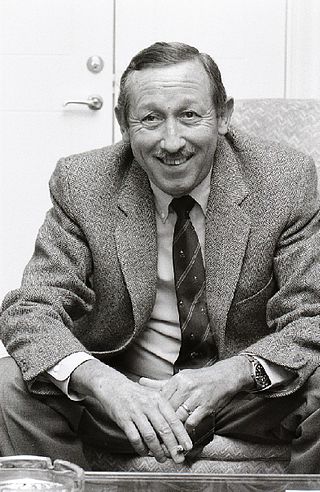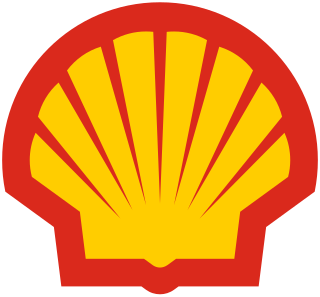Related Research Articles

The United East India Company and commonly known as the Dutch East India Company, was a chartered trading company and the first joint-stock company in the world. Established on 20 March 1602 by the States General of the Netherlands existing companies, it was granted a 21-year monopoly to carry out trade activities in Asia. Shares in the company could be bought by any resident of the United Provinces and then subsequently bought and sold in open-air secondary markets. The company possessed quasi-governmental powers, including the ability to wage war, imprison and execute convicts, negotiate treaties, strike its own coins, and establish colonies. Also, because it traded across multiple colonies and countries from both the East and the West, the VOC is sometimes considered to have been the world's first multinational corporation.

Michael Dammann Eisner is an Austrian-American businessman and former chairman and chief executive officer (CEO) of The Walt Disney Company from September 1984 to September 2005. Prior to Disney, Eisner was president of rival film studio Paramount Pictures from 1976 to 1984, and had brief stints at the major television networks NBC, CBS, and ABC.

Roy Edward Disney KCSG was an American businessman. He was the longtime senior executive for the Walt Disney Company, which was founded by his uncle, Walt Disney, and his father, Roy O. Disney. At the time of his death, he held more than 16 million shares, and served as a consultant for the company, as director emeritus for the board of directors. During his tenure, he organized the ousting of two top Disney executives: Ron W. Miller in 1984 and Michael Eisner in 2005.
Shareholder activism is a form of activism in which shareholders use equity stakes in a corporation to put pressure on its management. A fairly small stake may be enough to launch a successful campaign. In comparison, a full takeover bid is a much more costly and difficult undertaking. The goals of shareholder activism range from financial to non-financial. Shareholder activists can address self-dealing by corporate insiders, although large stockholders can also engage in self-dealing to themselves at the expense of smaller minority shareholders.

Shell Canada Limited is the principal Canadian subsidiary of British energy major Shell plc and one of Canada's largest integrated oil companies. Exploration and production of oil, natural gas and sulphur is a major part of its business, as well as the marketing of gasoline and related products through the company's approximately 1,800 stations across Canada.

Robert Allen Iger is an American media business executive who serves as the chief executive officer (CEO) of The Walt Disney Company. He previously served as the President of the American Broadcasting Company (ABC) between 1994 and 1995 and as president and chief operating officer (COO) of Capital Cities/ABC, from 1995 until its acquisition by Disney in 1996. Iger was named president of Disney in 2000 and succeeded Michael Eisner as CEO in 2005, until his contract expired in 2020. He then served as executive chairman until his retirement from the company on December 31, 2021. After his exit from the company, Iger served, at the company's request, as an advisor to his successor. Iger was awarded $2 million per year for such advice. However, at the request of Disney's board of directors, Iger returned to Disney as CEO on November 20, 2022, following the unscheduled and immediate dismissal of his appointed successor, Bob Chapek. In July 2023, Disney renewed Iger's contract until 2026.

Suncor Energy is a Canadian integrated energy company based in Calgary, Alberta. It specializes in production of synthetic crude from oil sands. In the 2020 Forbes Global 2000, Suncor Energy was ranked as the 48th-largest public company in the world.
A proxy statement is a statement required of a firm when soliciting shareholder votes. This statement is filed in advance of the annual meeting. The firm needs to file a proxy statement, otherwise known as a Form DEF 14A, with the U.S. Securities and Exchange Commission. This statement is useful in assessing how management is paid and potential conflict of interest issues with auditors.
Ray R. Irani is the former chairman and chief executive officer of Occidental Petroleum. He has worked at Occidental Petroleum for over 20 years, serving as a director since 1984, chief operating officer (president) from 1984 to 1990, and chairman and chief executive officer from 1990. During his early years, he worked with Occidental CEO Armand Hammer, who at age 91, named Irani his successor in February 1990. According to Forbes.com, his five-year total compensation between 2001 and 2005 was $127,447,000. In 2006, after a rise in oil prices, Irani earned a total of $460 million.
This page summarizes projects that propose to bring more than 20,000 barrels per day (3,200 m3/d) of new liquid fuel capacity to market, with the first production of fuel beginning in 2012. This is part of the Wikipedia summary of oil megaprojects.
Say on pay is a term used for a role in corporate law whereby a firm's shareholders have the right to vote on the remuneration of executives. In the United States this provision was ushered in when the Dodd Frank Act Wall Street Reform and Consumer Protection Act was passed in 2010. While Say on pay is a non-binding, advisory vote, failure reflects shareholder dissatisfaction with executive pay or company performance.

BP p.l.c. is a British multinational oil and gas company headquartered in London, England. It is one of the oil and gas "supermajors" and one of the world's largest companies measured by revenues and profits. It is a vertically integrated company operating in all areas of the oil and gas industry, including exploration and extraction, refining, distribution and marketing, power generation, and trading.

Shell plc is a British multinational oil and gas company headquartered in London. Shell is a public limited company with a primary listing on the London Stock Exchange (LSE) and secondary listings on Euronext Amsterdam and the New York Stock Exchange. A core component of Big Oil, Shell is the second largest investor-owned oil and gas company in the world by revenue, and among the world's largest companies out of any industry. Measured by both its own emissions, and the emissions of all the fossil fuels it sells, Shell was the ninth-largest corporate producer of greenhouse gas emissions in the period 1988–2015.

The Association of BellTel Retirees, Inc. advocates for more than 205,000 Bell Atlantic, NYNEX, GTE, MCI, Idearc Media|Idearc/SuperMedia, and Verizon union and management retirees. The association represents active Verizon employees regarding retiree issues such as cash balance plan conversions and termination of management pension and healthcare benefits.

Robert Warren Dudley is an American-born businessman who is a former group chief executive of BP. He had been president and chief executive of TNK-BP and on June 18, 2010, was assigned to be BP executive in charge of the Gulf Coast Restoration Organization responding to the Deepwater Horizon oil spill. He is the chair of the international industry-led Oil and Gas Climate Initiative (OGCI). He is a former board member of Rosneft, the Russian state-owned energy giant.
ShareAction is a registered charity that promotes Responsible Investment.

In the United States, the compensation of company executives is distinguished by the forms it takes and its dramatic rise over the past three decades. Within the last 30 years, executive compensation or pay has risen dramatically beyond what can be explained by changes in firm size, performance, and industry classification. This has received a wide range of criticism leveled against it.

The Beaver Lake Cree Nation is a First Nations band government located 105 kilometres (65 mi) northeast of Edmonton, Alberta, representing people of the Cree ethno-linguistic group in the area around Lac La Biche, Alberta, where the band office is currently located. Their treaty area is Treaty 6. The Intergovernmental Affairs office consults with persons on the Government treaty contacts list. There are two parcels of land reserved for the band by the Canadian Crown, Beaver Lake Indian Reserve No. 131 and Blue Quills First Nation Indian Reserve. The latter reserve is shared by six bands; Beaver Lake Cree Nations, Cold Lake First Nations, Frog Lake First Nation, Heart Lake First Nation, Kehewin Cree Nation, Saddle Lake Cree Nation.
The 2013 Swiss executive pay initiative of 2013 was a successful federal popular initiative in Switzerland to control executive pay of companies listed on the stock market, and to increase shareholders' say in corporate governance. It was one of three questions put to the electorate in the March 2013 referendums. The vote took place on the 3 March 2013, and passed with a majority of 67.9%, with a 46% turnout. The initiative mandates the Federal Government to implement the provisions within one year, pending implementation of the final law.
References
- ↑ John C. Coffee, Jr. (October 1991), "Liquidity versus Control: The Institutional Investor as Corporate Monitor", Columbia Law Review, 91 (6): 1277–1368, doi:10.2307/1123064, JSTOR 1123064
- ↑ Clark, Andrew (19 May 2008). "Exxon facing shareholder revolt over approach to climate change". The Guardian . London.
- ↑ Lubove, Seth; Fixmer, Andy (13 March 2010). "Brain-eating zombies invade Disney in Iger plan to win boy fans". The Seattle Times.
- ↑ "Now BP Faces Shareholder Revolt over Tar Sands". 8 February 2010.
- ↑ MacAlister, Terry (18 January 2010). "Shell faces shareholder revolt over Canadian tar sands project". The Guardian. London.
- ↑ Wachman, Richard (11 March 2010). "Cable & Wireless facing shareholder revolt over executive pay". The Guardian. London.
- ↑ "Shell Shareholder 'Rebellion' Leads To New Limits on Executive Pay, Bonuses". HuffPost. 16 February 2010.
- ↑ "Shell unveils plans to curb executive pay, bonuses - Yahoo! Finance". finance.yahoo.com. Archived from the original on 5 November 2011.
- ↑ "Time for a shareholder revolt". Reuters. 27 October 2009. Archived from the original on 29 October 2009.
- ↑ "Season's Meetings: Record Failed Say-on-Pay votes this proxy season" (PDF). Proxy Monthly. July 2018. Retrieved 4 December 2019.
- ↑ Frentrop, Paul (2009). The First Known Shareholder Activist: The Colorful Life and Times of Isaac le Maire (1559–1624), in Frentrop/Jonker/Davis 2009, 11–26
- ↑ Frentrop, Paul; Jonker, Joost; Davis, S. (ed.), (2009). Shareholder Rights at 400: Commemorating Isaac Le Maire and the First Recorded Expression of Investor Advocacy (The Hague: Remix Business Communications, 2009)
- ↑ Gelderblom, Oscar; De Jong, Abe; Jonker, Joost (2010). Putting Le Maire into Perspective: Business Organization and the Evolution of Corporate Governance in the Dutch Republic, 1590–1610, in J. Koppell, ed., Origins of Shareholder Advocacy. (New York: Palgrave Macmillan)
- ↑ McRitchie, James (6 October 2011). "Will UNFI Go Virtual-Only Again? Not if Shareowners Just Say No". CorpGov.net. Retrieved 28 December 2016.
- ↑ Mueller, Dennis C. (ed.), (2012). The Oxford Handbook of Capitalism, p. 333. (New York: Oxford University Press)
- ↑ Hansmann, Henry; Pargendler, Mariana (2013). The Evolution of Shareholder Voting Rights: Separation of Ownership and Consumption. (Yale Law Journal, Vol. 123, pp. 100–165, 2014)